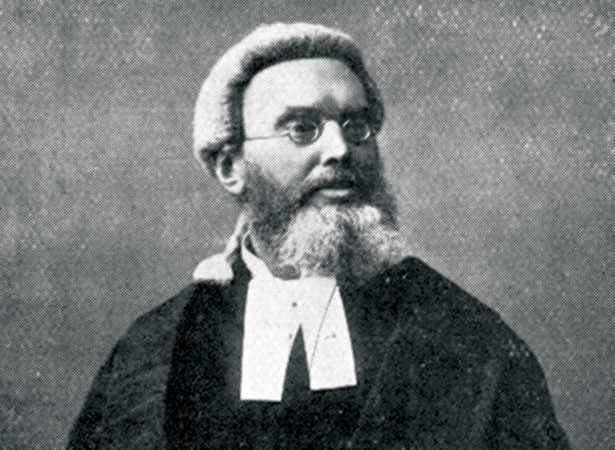
Chief Justice Sir James Prendergast’s statements when delivering judgment in the case of Wi Parata v The Bishop of Wellington would influence decision-making on Treaty of Waitangi issues for decades.
Prendergast was attorney-general from 1865 to 1875, and then chief justice of the Supreme Court until 1899.
The Wi Parata case involved a block of land at Porirua which Ngāti Toa had given to the Anglican church on the understanding a school would be built on it. Though no school was built, the church was later issued a Crown grant to the land.
Prendergast ruled that the courts lacked the ability to consider claims based on aboriginal or native title. The Treaty of Waitangi was ‘worthless’ because it had been signed ‘between a civilised nation and a group of savages’ who were not capable of signing a treaty. Since the treaty had not been incorporated into domestic law, it was a ‘simple nullity’.
Prendergast’s ruling was essentially based on earlier Court of Appeal decisions. It would be used to justify the alienation of much more Māori land.
Read more on NZHistory
Obtaining land – The Treaty in practiceJames PrendergastWiremu Parata
External links
How to cite this page
'Chief Justice declares treaty 'worthless' and a 'simple nullity'', URL: https://nzhistory.govt.nz/the-chief-justice-declares-that-the-treaty-of-waitangi-is-worthless-and-a-simple-nullity, (Ministry for Culture and Heritage), updated 7-Sep-2020
